PREPARING TO WIN: What it Takes to Create a Winning Mindset
OP-ED CONTRIBUTOR
Coach Daniel McKell of North County San Diego is helping his players to create a mentality that look past results on the field in order to focus on competing at the highest level possible — by giving it your all.
Carina Sammartino sat down with Coach McKell to discuss his influence in the game and his coaching philosophy at the youth level.
Youth Soccer News: Daniel McKell was named the varsity girl’s soccer coach at San Marcos High School in 2016. In 2016-2017, McKell’s team finished #2 in San Diego County according to Union-Tribune Preps, #48 in California and #109 in the US by Maxpreps.com — and #12 in California and #31 in the US by TopDrawerSoccer.
Among other accomplishments, they were the SoCal Regional Playoff Division-II Finalist, or in other words, State Championship runner-up. A coach with a record of big time wins normally is focused on the final score but McKell focuses on helping his players achieve their abilities instead — and, in turn, this helps enable his team to rise to the challenges they face on the field.
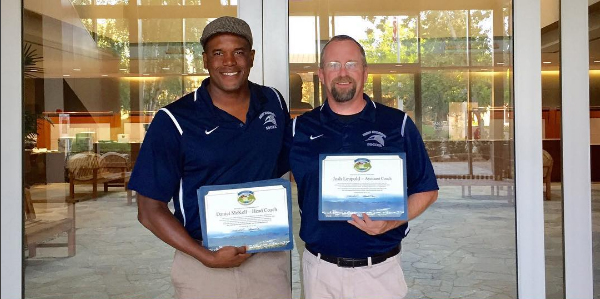
Carina Sammartino spoke with Coach Daniel, who is also girl’s DA coach at San Diego Surf Soccer Club and Technical Director at San Elijo Matrix, to ask him about his perspective on winning and what it means to have a winning mindset.
Carina Sammartino: Your varsity girls soccer team at San Marcos High School just finished an incredible season, breaking just about every school record and reaching further than any other sport at the school before — both male and female. Can you tell us a bit about that, where you started, where you finished, and how you got there?
Daniel McKell: Yeah it’s been a very exciting year. I’m most proud of our overall win-loss-tie record: 22-2-4 with a school record 23-game unbeaten streak — which ties for 7th in the all-time CIF-San Diego record book — and a school record of 15 shutouts.
We had nine players that were conference all-stars and two that made the All-CIF team in the state — all school records.
Where did we start? Great question.
When I came to the school in early 2016, the team was completely broken. There was a lot of mistrust – of each other, of the coaching staff – and zero confidence in the program.
Even though there was a ton of talent, San Marcos High School had a mediocre brand and a divided team. So we had to completely rebrand San Marcos before we could unite this team.
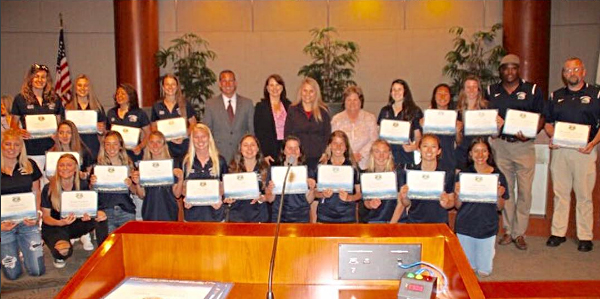
First, I set really big goals. I told the school we were going to make the state championship; we were going to beat the big high schools like Cathedral Catholic.
There were a lot of naysayers, a lot of people who thought it would fail. But I wanted people to know there was a higher level of soccer in the area and we had to prove it.
Next, I started with the leaders of the team and built a relationship with them. Once I got them to believe and buy into my goals, they were able to connect with the rest of the team a lot faster than I would have been able to.
Third, I started training with the girls in the summer – to work on soccer but more importantly, to bond.
Bonding was the most important thing. At the beginning there were two, four, maybe 10 girls, but they got to train, bond, and improve their weaknesses.
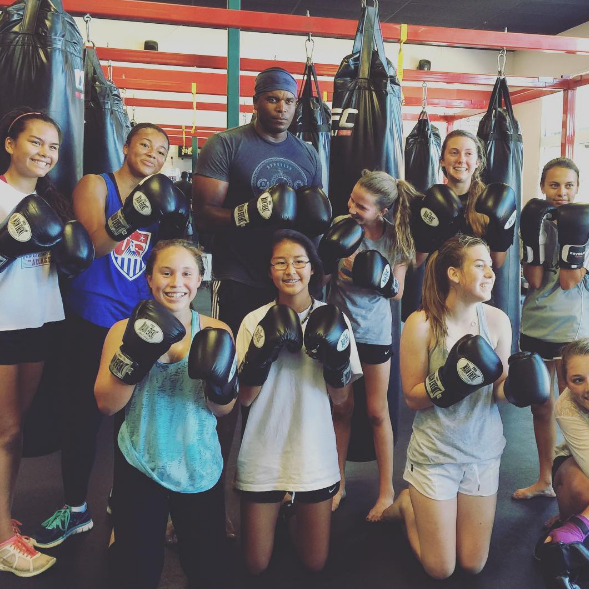
We also did a lot of different types of training, like kickboxing for mental/physical toughness, and several sessions with Mindset Sports, which was so important for empowering these young girls to think of themselves the way I saw them, which was full of talent and potential.
Another important activity we did: we took the girls for an overnight camp at the Olympic Training Center in Chula Vista – away from parents, away from the school, friends, activities, etc. I wanted them to see greatness – what it looks like, what it takes.
So overall preparation was key – setting big goals and bonding the team. I told them that it wasn’t an option, no matter what, we were achieving our goals so they had to change their mindset of how they viewed their community, their school, and themselves.
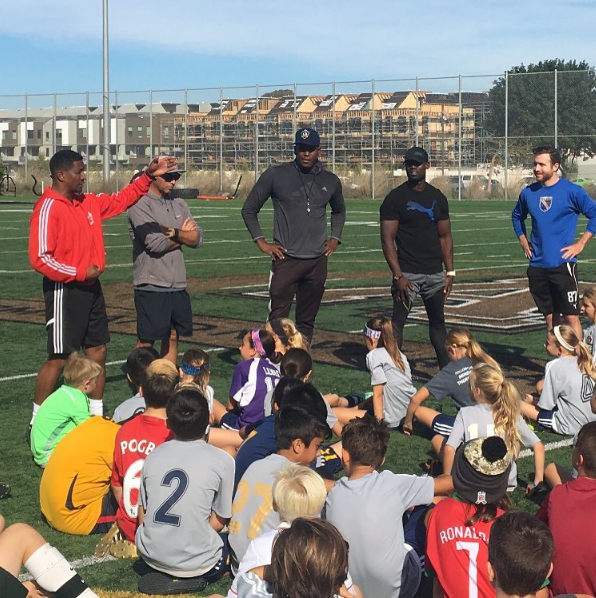
Carina Sammartino: What does it mean to have a winning mindset? And is it different than having a “win at all costs” mindset?
Daniel McKell: It’s very different.
A winning mindset is “you can still lose a game, and walk off as a winner.”
For example, our first loss of the season was in the semifinals of CIF, against Torrey Pines HS in sudden death overtime, and even though we lost, we walked off with our heads held high.
There’s a big difference between losing by not giving your best effort versus an epic 3-2 loss in overtime where we could hardly walk after the game against the eventual winners. It means a lot for your growth and your heart to learn to never give up.
Winning is an embodiment of training hard.
That means you prepare for the game the day before by eating right, sleeping well, getting your mind prepared for the game. You’re prepared to win.
A winning mindset means that for three months you’re giving your coach your heart and mind – you’re sacrificing not staying out late, not drinking, not eating like crap, etc. You give it your everything for months.
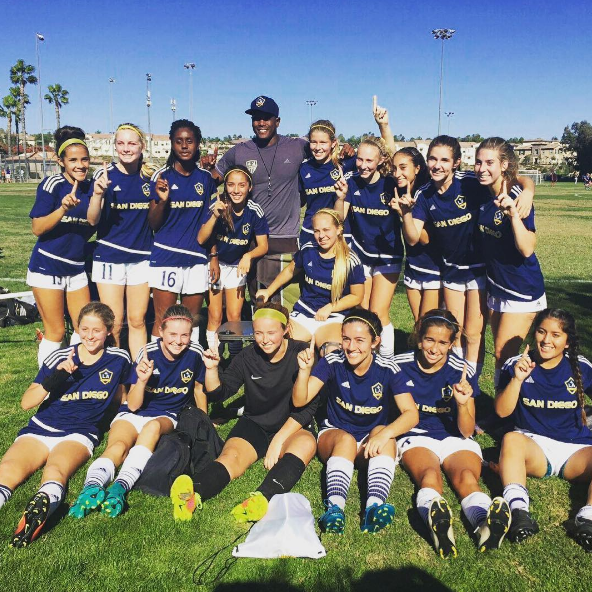
Our final at the state championship had the worst preparation – we didn’t get a school bus so the team travelled separately, we were stuck in five hours of LA traffic, players were arriving 30 minutes before the game – and it showed.
Our first half was a mess 0-2 at half, which we had never been down before. But, by the second half we got into the right mindset — we just ran out of time and lost 2-3.
“Win at all costs” usually means short cuts, cheating, making bad and even immoral decisions to win. There’s a level of desperation there.
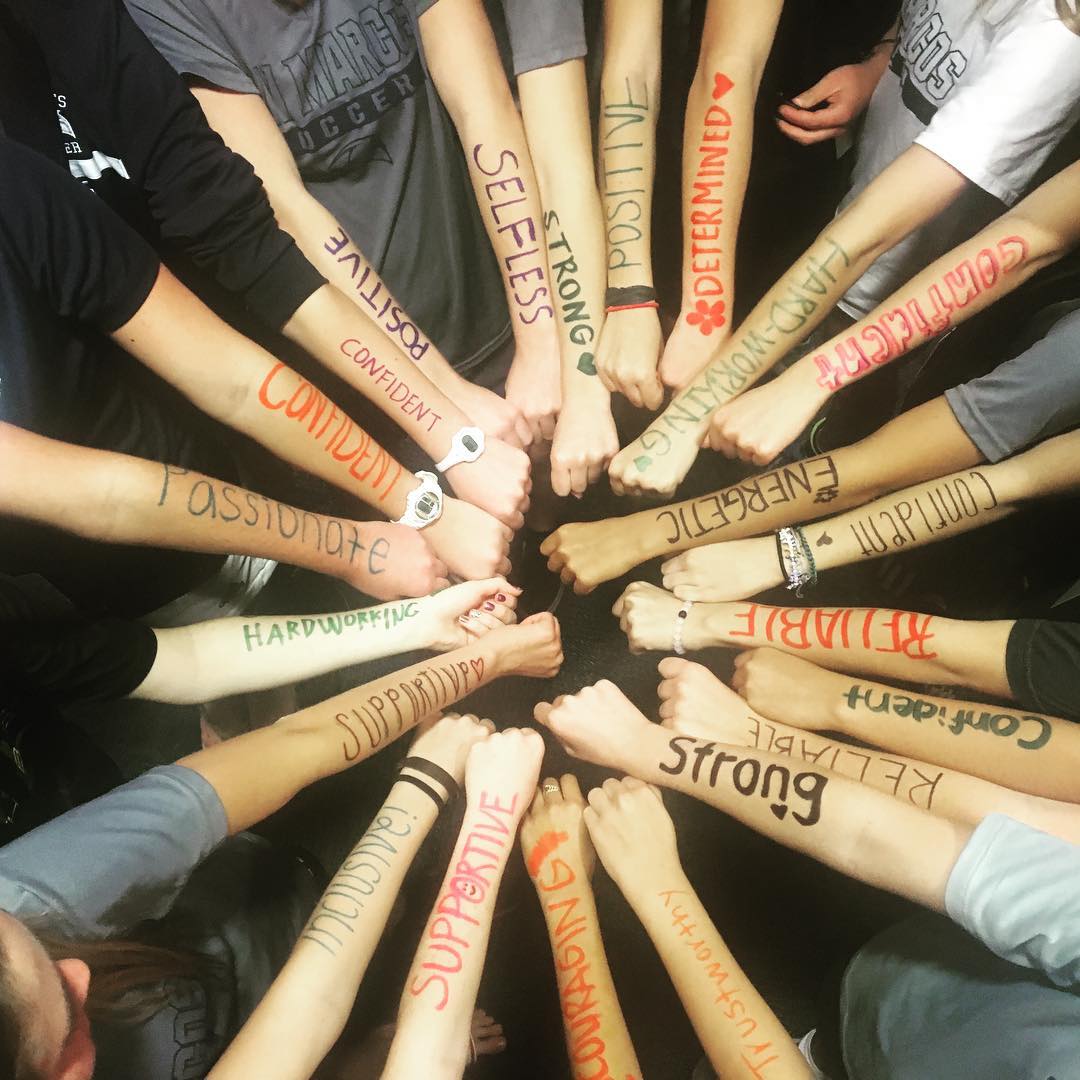
Carina Sammartino: The culture of youth soccer in America today seems to emphasize “development” over winning – at least in the younger ages it’s almost taboo to talk about wanting to win. Do you think this is wrong? What should be different?
Daniel McKell: American culture is built on winning.
America wants to be the best – it’s engraved in your DNA.
There does need to be a balance; however, because everyone develops in his or her own time. For example, kids may need the time to make mistakes and grow later on. BUT, with good development winning comes as a result.
If the objective of the game is to win, you need to show up with the mindset that you want to win — to me that’s life!
Development is important, and yes you can learn from losing – but you must have goals and ambition and what is the objective of the game? To win!
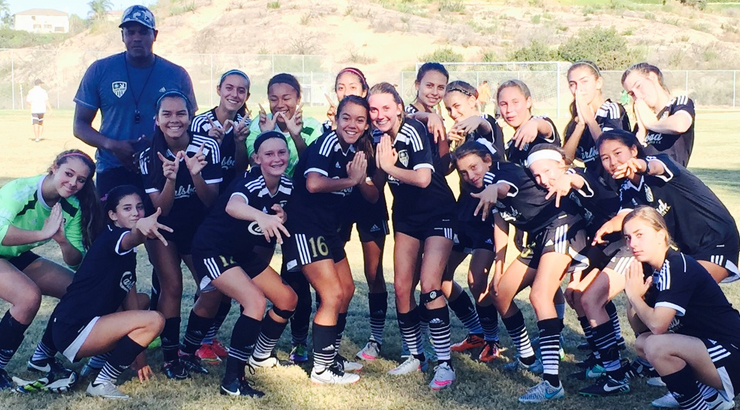
My coaching philosophy took a big turn early in my career when a dad challenged me. He asked me point blank, “so coach, when are we going to start winning?”
At first I was offended, then I realized what he was demanding of me.
I knew we had to get some wins because they were losing faith in me.
Once we started winning, I had their attention and could get them to work harder. Winning made them more receptive to the development side.
Players need to know when you’re disappointed in their performance – they should strive to please do their best always.
I do think that the word “development” has become a bit of a crutch – it’s being used to cover up underachieving performances.
Winning isn’t everything, but you must play like you are going to win. No matter what.
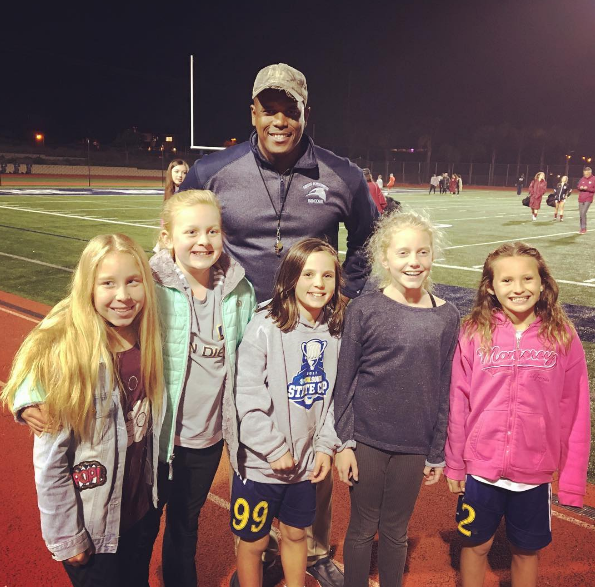
Carina Sammartino: Do you think there’s an epidemic of “soft coaching” and “soft parenting” today? If so, why? What’s driving this and what does it mean for sports?
Daniel McKell: I don’t know when we lost our way, but when I grew up, there was accountability the whole way through.
If you did something wrong at school, you got punished, you got detention, they called your parents, and your parents punished you, too. Today, consequences and accountability is gone.
This might sound funny, but I think it all changed when that woman spilled coffee on herself at McDonald’s, sued them, and won.
How stupid do you have to be not to know the coffee was hot?!
Instead of accepting responsibility, you manipulated the system and won! That changed accountability in America forever. Now we’re in this weird era where everything is politically correct and all about personal freedom, yet you’re not really allowed to speak your mind.
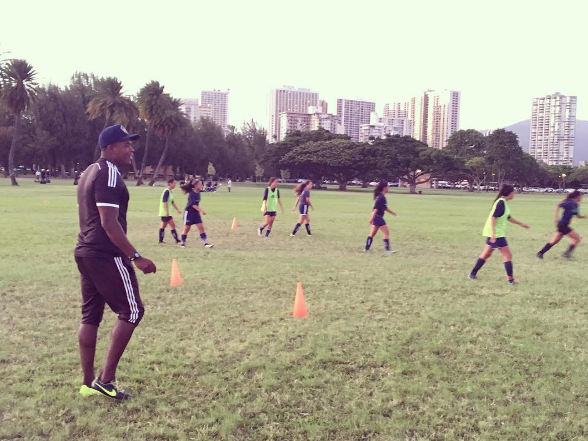
Sports are about dealing with people, not robots. We now have softer kids, softer parents — accountability has changed and demands have changed.
It’s harder for me to get the best out of kids today because they hold back, because they know they don’t have to try their best, and they’re afraid to fail. This culture of “everyone gets a medal,” and “it’s okay to be on the 5th team” translates to “you don’t have to push to win.”
I’m not getting the best from kids; I’m not getting the kids who come to me already motivated to work hard and want to push.
I have to work extra hard to get them to their potential.
I used to get a team, tell them we wanted to win, and two practices later we were there. Now I have to do all this other mental stuff for months and months before the first game.
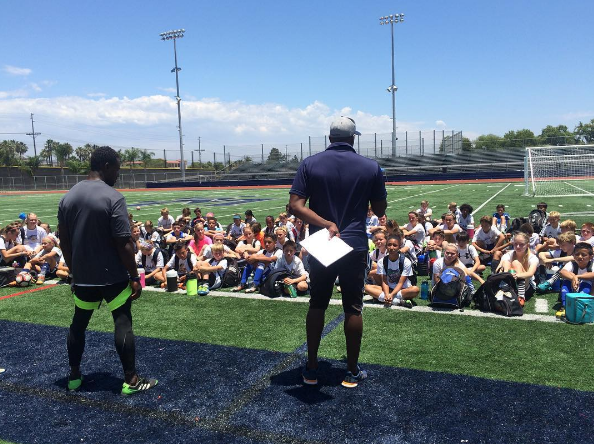
Carina Sammartino: What role do parents play in developing a winning mentality in their kid?
Daniel McKell: They need to teach them what it means to win, what it takes to prepare. You also have to be real with your kid.
Don’t tell them they should be on the top team if they shouldn’t. I don’t believe you should teach them to question the coach or criticize other players. This gives the kids a sense of entitlement they may not deserve.
The car ride home after a game is critical to how your kid will feel the next day.
Helicopter parenting is a disservice to everyone. You have to gradually let go, let them fail and fall. It makes them better people. And when a kid triumphs because they did it all on their own, it means so much more to them to know they can accomplish something with hard work.
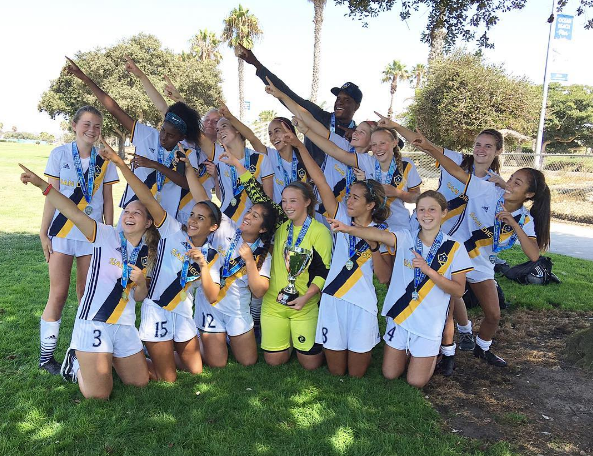
Carina Sammartino: You host several elite soccer camps for kids of all ages, with a very impressive roster of coaches from top clubs in Southern California. Can you tell us what a player can expect at one of your camps? What can parents expect?
Daniel McKell: Our soccer camps breed a culture of “I’m coming to work today.” Players know that for 3-4 hours, they have to have high expectations, be attentive, learn several things and work hard.
Coaches are expected to push the kids and make it enjoyable to work hard. All of the coaches have high expectations of themselves first, so they can push the kids.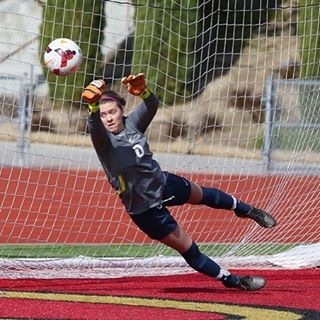
It’s the accountability we just talked about. For example, we definitely limit the goofing around.
Last summer a kid was messing around on the first day; I sat him out the rest of the session and told him he wasn’t coming back to the group that day. If he didn’t like it, he could go home and I’d refund the money. He came back the next day ready to work.
Also, if kids leave stuff behind, I throw it away or just leave it. It is a kid’s responsibility to find their lost ball after practice, not their parent’s or mine. It’s also their responsibility to eat right, sleep right, etc.
From the first day, we set the tone. We train them like they’re champions – no matter who they are.
At our college ID camp, we’re bringing in 20+ coaches from top universities — UC Santa Barbara, University of Oregon, San Diego State, Brown, NYU and more — to see the local showcased talent. It’s a pretty incredible opportunity and we take it very seriously. High school and college soccer is a big deal and a tremendous opportunity for young men and women to get a free education.
I came to the U.S. for college on a soccer scholarship and believe education is the most important thing above all else.
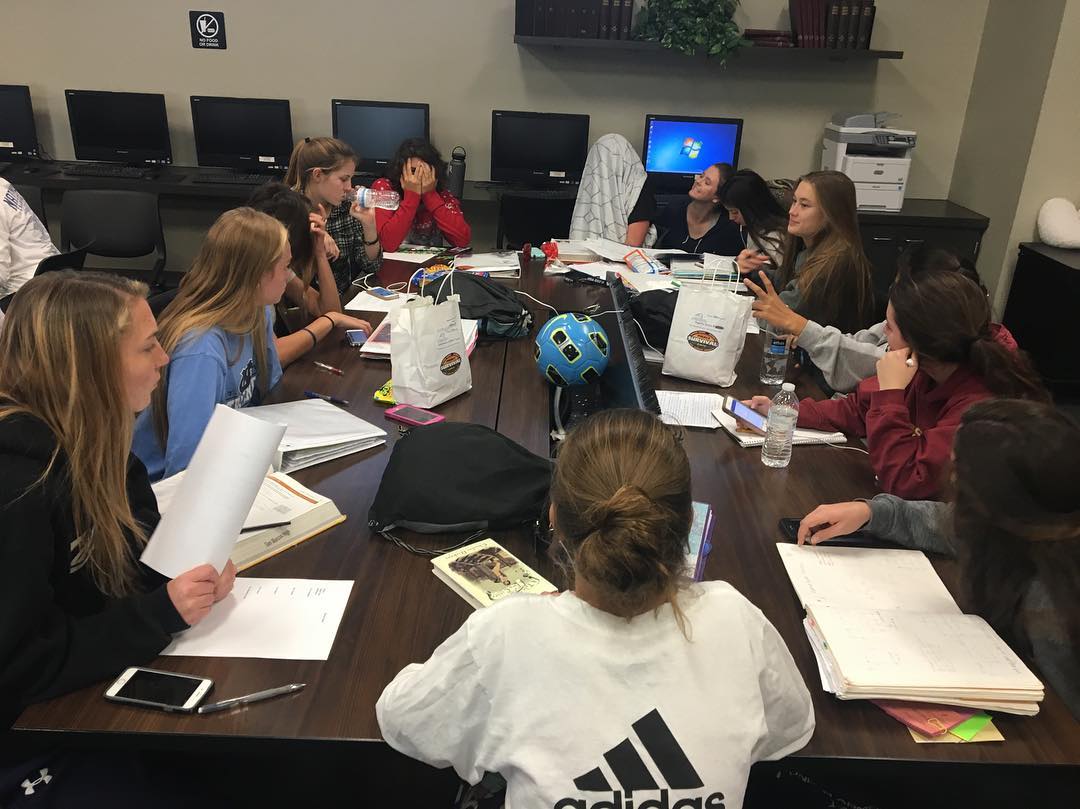
Carina Sammartino: Why did you choose to host the ID camp at San Marcos High School?
Daniel McKell: I brought it to San Marcos because I feel like it gives the overall community a big goal to use soccer as a tool to set high athletic and academic standards.
It’s my dream to have 80 percent of my players go on to play college soccer. If top colleges come to your town, it shows that excellence is possible there.
Also, I wanted an ID camp with a nice spread of schools so there’s a practical option for all. Not everyone is going to attend a Division 1 school, but you can still be you and go to a good school and play sports. There’s truly something for everyone, from a solid standard to the highest level.
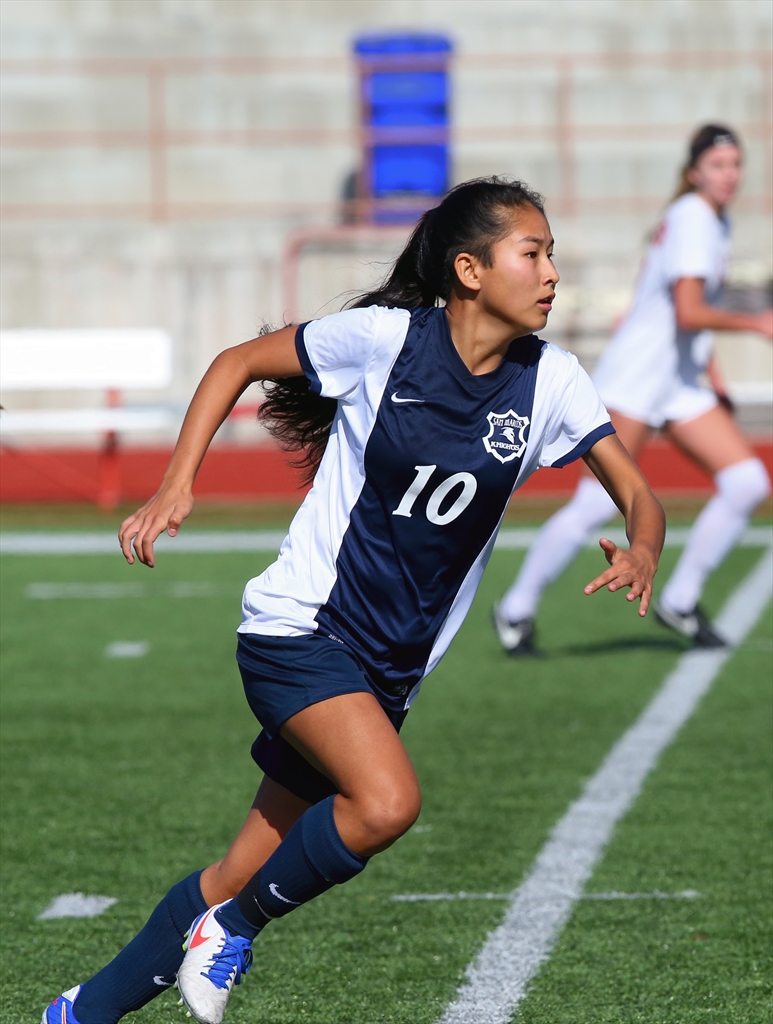
Carina Sammartino: How do you feel about high school soccer versus the U.S. Soccer Girls’ Development Academy?
Daniel McKell: In my opinion, high school sports is a special time of excitement and can provide a pathway with incredible value.
There’s less of a pathway for women to play professional soccer at this point in the U.S., and while it used to be that high school soccer was really bad soccer, it’s catching up to the club system.
As kids in America are starting to play quality soccer at younger ages, it’s raising the bar for high school soccer, as well.
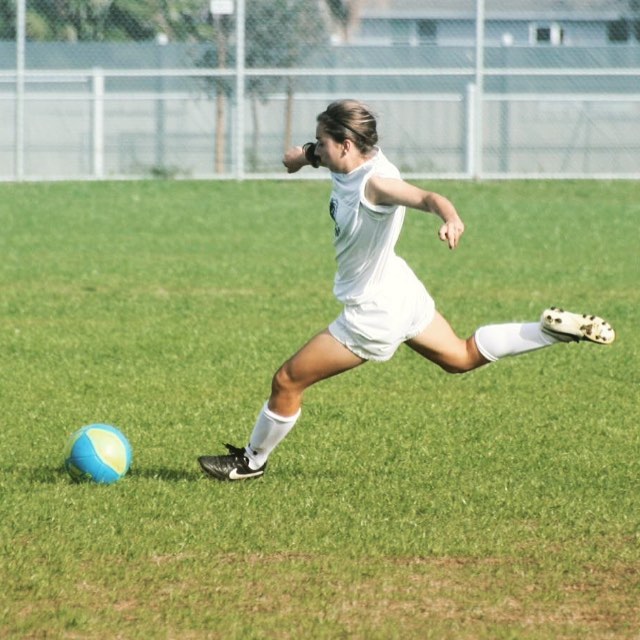
This year, our league was much harder than the year before. We played against schools like Carlsbad, LCC and Cathedral Catholic High School, where many of the juniors are already committed to D1 schools! And for the first time in history, San Marcos beat them.
I have two players, one who lives in San Marcos and one in La Costa area – they come from different worlds only three miles apart, but they play for one purpose, San Marcos High School. That’s the magic of high school sports.
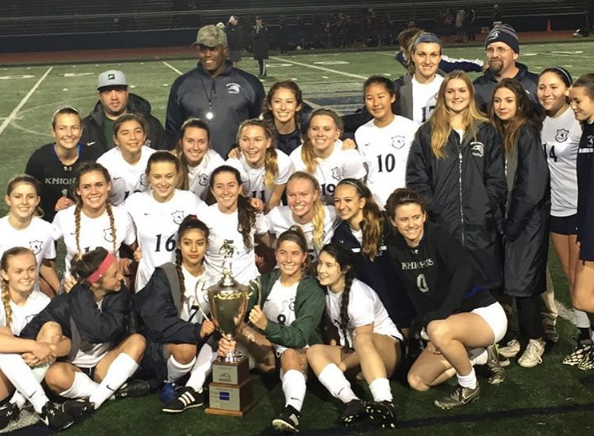
Carina Sammartino: Coming off a very successful year at San Marcos, what can we expect from you next season? Has your team already started training?
Daniel McKell: Well, we came up short, you know? (laughs) I told everyone in that room that we were going to make State, and people told me I was crazy. I believe this year we will win State. There’s no doubt. I believe we will show people this year was not a fluke.
This month we start training 1-2 times a month, free of charge. Training is more than just technical; I let them know it’s something special to be a part of.
Carina Sammartino: Thanks so much for your time, Coach. See you on the field.
Daniel McKell: Anytime, thank you.
Related Article: LA Galaxy SD’s Bagully Represents Kazakhstan
For more information about Coach Daniel’s upcoming youth camps, including the college ID camp, visit here.





